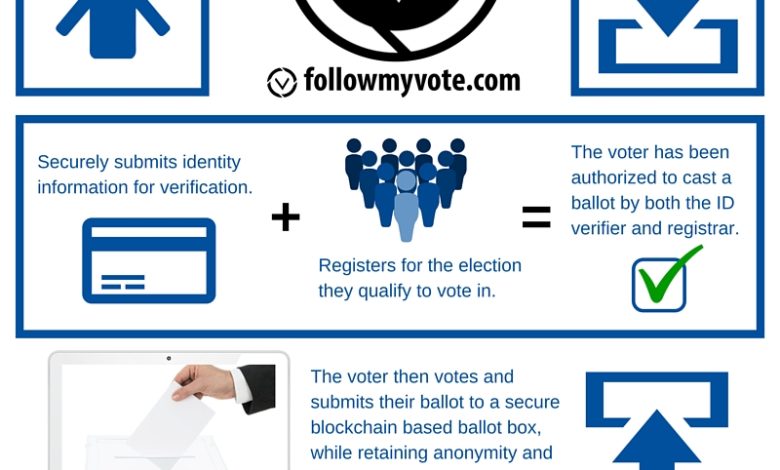The Role of Blockchain in Voting Systems

- Understanding the basics of blockchain technology
- The benefits of using blockchain in voting systems
- Challenges and concerns surrounding blockchain voting systems
- Case studies of successful implementation of blockchain in voting
- Exploring the potential for increased transparency and security in voting with blockchain
- Future implications of blockchain technology on the electoral process
Understanding the basics of blockchain technology
Blockchain technology is a decentralized, distributed ledger system that securely records transactions across a network of computers. Each block in the chain contains a list of transactions, and once a block is added to the chain, it is immutable and cannot be altered. This transparency and security make blockchain an ideal solution for voting systems, where trust and integrity are paramount.
One of the key features of blockchain technology is its ability to provide transparency and traceability. Each transaction is recorded in a block, which is linked to the previous block, creating a chain of blocks. This ensures that every vote cast is recorded and cannot be changed or tampered with. This level of transparency helps to build trust in the voting process and ensures that the results are accurate and verifiable.
Another important aspect of blockchain technology is its security. The decentralized nature of the blockchain means that there is no single point of failure, making it extremely difficult for hackers to manipulate the system. Additionally, the use of cryptographic algorithms ensures that each transaction is secure and cannot be altered without the consensus of the network.
Blockchain technology also offers the potential for increased accessibility and convenience in voting systems. By using a blockchain-based voting system, voters can cast their votes from anywhere in the world, as long as they have an internet connection. This can help to increase voter turnout and make the voting process more inclusive.
In conclusion, blockchain technology has the potential to revolutionize voting systems by providing transparency, security, and accessibility. By leveraging the unique features of blockchain, we can create a voting system that is trustworthy, efficient, and resilient to fraud.
The benefits of using blockchain in voting systems
Implementing blockchain technology in voting systems offers numerous benefits that can revolutionize the way elections are conducted. One of the key advantages is the enhanced security that blockchain provides. By utilizing decentralized and encrypted ledgers, the integrity of the voting process can be significantly improved, reducing the risk of fraud and manipulation.
Furthermore, blockchain technology ensures transparency and accountability in the voting process. Each vote is recorded on a secure and immutable ledger, making it nearly impossible to alter or tamper with the results. This level of transparency helps to build trust among voters and ensures that election outcomes are fair and accurate.
Another benefit of using blockchain in voting systems is the increased efficiency it offers. Traditional voting methods often involve time-consuming processes such as manual counting and verification. With blockchain, votes can be securely and quickly recorded in real-time, streamlining the entire voting process and providing faster results.
Moreover, blockchain technology can help to increase voter turnout by offering more convenient and accessible voting options. Through secure online platforms, voters can cast their ballots from anywhere, eliminating the need to physically visit polling stations. This convenience can encourage more people to participate in the democratic process.
In conclusion, the integration of blockchain technology in voting systems has the potential to address many of the challenges and shortcomings of traditional election processes. By enhancing security, transparency, efficiency, and accessibility, blockchain can help to ensure that elections are conducted in a more reliable and democratic manner.
Challenges and concerns surrounding blockchain voting systems
When it comes to blockchain voting systems, there are several challenges and concerns that need to be addressed. One of the main issues is the potential for security breaches. While blockchain technology is known for its security features, there is still a risk of hacking and manipulation. This could undermine the integrity of the voting process and raise questions about the legitimacy of the results.
Another concern is the lack of transparency in blockchain voting systems. While the technology itself is transparent and immutable, the way it is implemented in voting systems may not always be clear to the public. This could lead to doubts about the fairness of the elections and the accuracy of the results.
Furthermore, there are logistical challenges associated with blockchain voting systems. For example, not everyone has access to the internet or the necessary technology to participate in online voting. This could disenfranchise certain groups of voters and raise questions about the inclusivity of the voting process.
In addition, there are legal and regulatory challenges that need to be addressed. The use of blockchain technology in voting systems may raise questions about compliance with existing laws and regulations. It is important to ensure that the use of blockchain in voting systems is in line with legal requirements and does not infringe on the rights of voters.
Case studies of successful implementation of blockchain in voting
Several case studies have demonstrated the successful implementation of blockchain technology in voting systems, showcasing the potential for increased security, transparency, and efficiency in electoral processes. These real-world examples highlight the benefits of utilizing blockchain in voting:
- **Estonia:** Estonia has been a pioneer in implementing blockchain technology in its voting system since 2014. By using blockchain, Estonia has been able to ensure the integrity of the voting process, prevent fraud, and increase voter turnout. The system allows voters to cast their ballots securely online, providing convenience and accessibility.
- **West Virginia, USA:** West Virginia became the first state in the United States to implement blockchain technology in a federal election in 2018. The state used a mobile blockchain-based platform that allowed overseas military personnel to cast their votes securely. The system was praised for its security features and ease of use.
- **Sierra Leone:** In 2018, Sierra Leone conducted the world’s first blockchain-powered presidential election. The country used a blockchain-based system to tally election results in real-time, ensuring transparency and reducing the risk of tampering. The implementation was successful in providing a secure and verifiable voting process.
These case studies demonstrate the potential of blockchain technology to revolutionize voting systems by enhancing security, transparency, and accessibility. As more countries and states explore the use of blockchain in elections, the technology is poised to play a significant role in shaping the future of democratic processes worldwide.
Exploring the potential for increased transparency and security in voting with blockchain
Blockchain technology has the potential to revolutionize voting systems by increasing transparency and security. By utilizing blockchain, each vote can be securely recorded and stored in a decentralized manner, making it nearly impossible to tamper with or manipulate the results. This increased level of security can help to restore trust in the voting process and ensure that each vote is accurately counted.
One of the key benefits of using blockchain in voting systems is the ability to provide a transparent and immutable record of all votes cast. This means that voters can verify that their vote was recorded correctly and that the overall results are accurate. Additionally, blockchain technology can help to prevent fraud and ensure that only eligible voters are able to cast a ballot.
Another advantage of blockchain in voting systems is the potential for increased accessibility. With blockchain, voters can cast their ballots from anywhere in the world, as long as they have an internet connection. This can help to increase voter turnout and make the voting process more convenient for all individuals.
Overall, the use of blockchain in voting systems has the potential to revolutionize the way that elections are conducted. By increasing transparency, security, and accessibility, blockchain technology can help to ensure that every vote is counted and that the democratic process is upheld.
Future implications of blockchain technology on the electoral process
The future implications of blockchain technology on the electoral process are vast and promising. By leveraging the decentralized and transparent nature of blockchain, voting systems can become more secure, efficient, and accessible.
One of the key benefits of blockchain in the electoral process is the ability to ensure the integrity of the voting system. **Blockchain** technology can provide a tamper-proof record of votes, making it nearly impossible to manipulate or alter the results. This can help to increase trust in the electoral process and reduce the risk of fraud.
Additionally, blockchain can also improve the efficiency of voting systems. By using smart contracts, **blockchain** technology can automate many aspects of the voting process, such as voter registration and verification. This can help to streamline the process and reduce the likelihood of errors or delays.
Furthermore, blockchain technology can make voting more accessible to a wider range of people. By enabling **online** and mobile voting options, blockchain can make it easier for people to participate in the electoral process, particularly those who may have difficulty accessing traditional polling stations.
Overall, the future of blockchain in the electoral process looks promising. By leveraging the security, efficiency, and accessibility of blockchain technology, voting systems can be transformed to better serve the needs of citizens and ensure the integrity of democratic processes.






